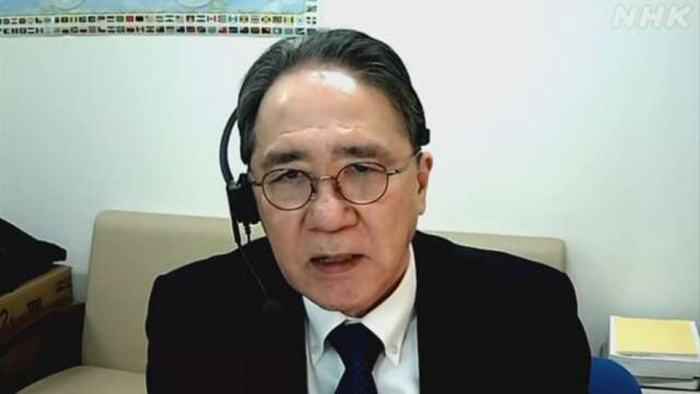NHK World visited a clinic in Tokyo’s Shinjuku Ward on July 18, where a steady stream of patients suffering fever and other symptoms sought attention.
A man in his 40s with a fever of around 38 degrees complained of a sore throat. Tests showed that he was inflamed by the coronavirus. He reported no known exposures.
Of the 24 patients treated that day, 11 tested positive. Ando Sakuro, medical director of the clinic, said about 10 more people have tested positive every day since late June.
The symptoms, in addition to fever and sore throat, resemble those of the common cold, making them difficult to distinguish. But Ando warns that COVID-19 is more contagious.
“Summer vacation will provide more opportunities for other people to interact with other people,” he said. “I recommend taking fundamental infection measures, such as washing your hands, ventilating and wearing a mask when coughing. ”
The average number of coronavirus patients presented to some medical centers in Japan during the week ending July 14 was 11. 18. This is 1. 39 times more than last week, marking the 10th consecutive weekly increase.
By prefecture, Kagoshima tops the list with 31. 75. It is followed by Saga with 29. 46 and Miyazaki with 29. 34. This figure is higher in the maximum of the 47 prefectures.
Hamada Atsuo, a visiting professor at Tokyo Medical University and an infectious disease expert, said the recent infections can be attributed in part to the KP. 3 variant, a type of Omicron strain.
“KP. 3 is a virus derived from JN. 1 and has become a primary epidemic not only in Japan but also in the northern hemisphere, including Europe and the United States. According to some reports, it is more contagious than other variants. ” Hamada says: “The severity of the symptoms is not much different from other variants. “
He expects the number of COVID patients to increase until about mid-August as there are more summer vacation destinations.
“As we enter the epidemic season, everyone should take anti-infection measures, such as thorough ventilation and hand-washing, and seek medical treatment as soon as possible if symptoms appear,” Hamada said. “And for the elderly who are more susceptible to serious illness, I recommend wearing masks when out in crowds.”

